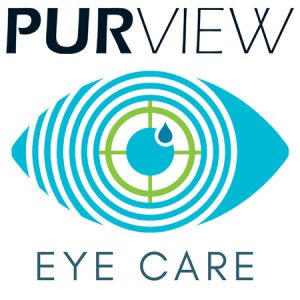Dr. Alfano Answers Your Questions about Children's Eye Care

From what age should a parent be bringing in their children for an eye exam?
The Ontario Association of Optometrists specifies that all children at 6 months of age should have their first eye exam. As a continuation of this I often suggest at least 2-3 check-ups prior to starting JK.
Why is it important to bring a child in at such a young age?
This is important for determining visual function and development. The vast majority of basic learning is done through vision in the first several years of life. Children often cannot communicate vision problems to parents and parents may not detect issues if there is only a problem in one eye.
What is the difference in terms of the examination process when you are checking the eyes of young children?
There are several differences including objective ways to determine vision. Often kids charts and pictures are used to verify vision. However, all kids can be seen and tested even those that are non-verbal. There is often a misconception that the child needs to know the alphabet or respond verbally. This is not necessary to do an eye exam
Are there any signs that parents should be looking out for that would point them to making an appointment with their optometrist?
Parents often have good instincts about changes in their child’s behaviour or vision. However, when a child is very young or is born with vision issues it may be more difficult to detect. Headaches, moving closer to the TV, fatigues, and avoidance are just some of the issues that could be notable.
Do you find that some parents can express hesitancy in bringing in young children? What causes that hesitation?
Parents believe that a child needs to respond to commands or questions and this not necessary. They also feel their child will not wear glasses but not realize that there is a small window to help kids while their vision is developing. After the age of 8 there are limits to the rehabilitation that can be done.
How does school play a role in this?
Schools often have screenings that help to detect issues in children and they can help educate parents on the need for good vision scholastic success. They can also help parents be aware of our Eye See Eye Learn that provides a free pair of glasses to all JK age kids that have their exam at a participating optometrist.
Do you have issues with children that are shy or intimidated in the office, and how do you work with that?
It may take some time to get a shy child to participate or cooperate with the eye exam. There are several quick checks that can be done to verify the visual status of a child. We try to do what we can during a short time frame while watching cartoons or creating games to play. If we can’t obtain all the information we need it is not uncommon to bring a child back every 6-8 weeks until we are satisfied with the outcome.
Can you recall any particular story of a child that came into your office, in which you were able to detect an issue early on and therefore make a difference in that child's eye health?
There are too many examples of young children that now ask for their glasses daily because life and learning are more fun and interesting when they can see. I still get goosebumps after 20+ years when a child expresses joy and amazement when they see properly with glasses for the first time.
Any further comments specific to pediatric care that parents should be aware of?
Parents with a near-sighted history or that have children with myopia should be aware of the research and methods available to optometrists to help slow down the changes in their vision. Prescription eye drops or contact lenses have shown successful reduction in prescription changes in a majority of kids from 6-16. This reduces the chance of living life with very high prescription and therefore reducing the risk of multiple ocular complications over a lifetime.

In case of emergency, please phone our office at the number listed above. After hours, please visit your nearest emergency room.